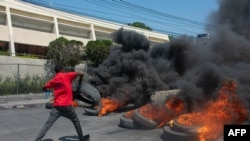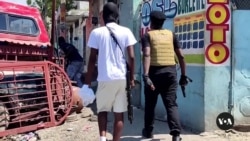Haiti’s capital, Port-au-Prince, has been plagued by an uptick in rampant gang violence since January, forcing a shutdown of the country’s main airport and plunging the nation further into chaos.
Gangs besieged the country's largest airport last week, locking out Prime Minister Ariel Henry, who on Tuesday conceded to their demands that he immediately resign. Henry said in a video statement posted online from Puerto Rico that he would step down once a transitional presidential council is installed.
Henry was appointed Haiti’s prime minister just days before President Jovenel Moise was assassinated but was never sworn in.
Haiti’s recent history has been marked by instability and conflict. Here’s what you need to know about the country’s current turmoil.
When did the current violence begin?
Although Haiti has faced instability throughout its history, the current situation stems from Moise’s assassination in 2021. Since then, the country has been without a president or a functioning government. There have been no elections, and the terms of the last National Assembly members expired in 2023. With a weakened National Police force, gangs have overrun the capital. According to United Nations officials, gangs now control about 80% of Port-au-Prince.
What are other countries doing to end the instability in Haiti?
Leaders of the Caribbean Community, known as CARICOM, have been meeting in Kingston, Jamaica, this week to discuss the crisis in Haiti. U.S. Secretary of State Antony Blinken announced Monday at the meeting that the United States would contribute an extra $100 million to support the U.N.-backed security force in Haiti, along with another $33 million in humanitarian aid.
What’s ahead for Haiti?
CARICOM released a statement Monday outlining the criteria of a Transitional Presidential Council. Henry will resign once the council is in place.
Blinken said he has been working over the last several days with CARICOM and other stakeholders to outline a path forward for Haiti. He said the plan will be “Haitian-led, Haitian-conceived, but with the critical support of countries” attending the meeting.
U.S. Ambassador to the U.N. Linda Thomas-Greenfield echoed U.S. support for Haiti, saying, “The international community must do everything it can to support these aims. The Haitian people have suffered enough.”
Some information for this report came from The Associated Press and Reuters.






